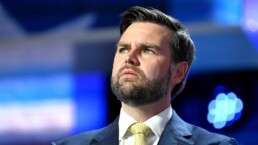There’s a basic conflict of interest at the heart of American health care. We need to break up the industry to fix it.
By Matt Stoller, The Lever
The dominant trend of US social life over the last fifteen years is a stagnating, and then declining, life span. There are many reasons for this trend, such as violence, diet, suicide, drug addiction, and auto accidents. But for many reasons, our monopolistic health care system is a big part of the problem.

Monopolistic drug wholesalers fostered the opioid crisis, and now, for the same reason, they are creating shortages of prescription drugs. Untreated mental illness is a significant factor in elevated suicide rates. Not being able to get care when you need it is associated with higher levels of death and permanent injury. More fundamentally, knowing that there are no systems in place to protect or care for you undermines any sense of hope.
It’s easy to describe what is happening as consistent with an overall pessimistic tale about the U.S., one that is almost uniquely American. The story goes that in the U.S., the richest country in the world, citizens can’t get access to a doctor when they need it. Most of Europe, and most countries globally, have universal health care, and some have had it for more than a century. By contrast, we’ve never had it here.
America almost achieved universal health care multiple times. Teddy Roosevelt proposed it, so did Harry Truman, Richard Nixon, Jimmy Carter, and Bill Clinton. They failed, largely because of the powerful doctor lobby — the American Medical Association — standing against it.
Recent Posts
Is A Citizens United 2.0 Right Around The Corner?
July 15, 2025
Take Action Now Is it possible for American democracy to be further degraded by the influence of billionaires? Thanks to champion of the working…
U.S. Leaders Gave Up On Diplomacy With Iran. We Must Make Them Return To It.
July 15, 2025
Take Action Now Building an antiwar movement means preventing the systemic U.S. aggression that creates the conditions for war.By Hanieh Jodat,…
What To Do When You See ICE In Your Neighborhood
July 14, 2025
Take Action Now How can you deter the Trump administration’s immigrant deportation machine when it pops up in your community? Follow these…
ICE Campaign Of Violence Will Lead To More Deaths
July 14, 2025
Take Action Now Jaime Alanis’s death shows the horrific consequences of a secret police force behaving with utter impunity.By Natasha Lennard, The…




